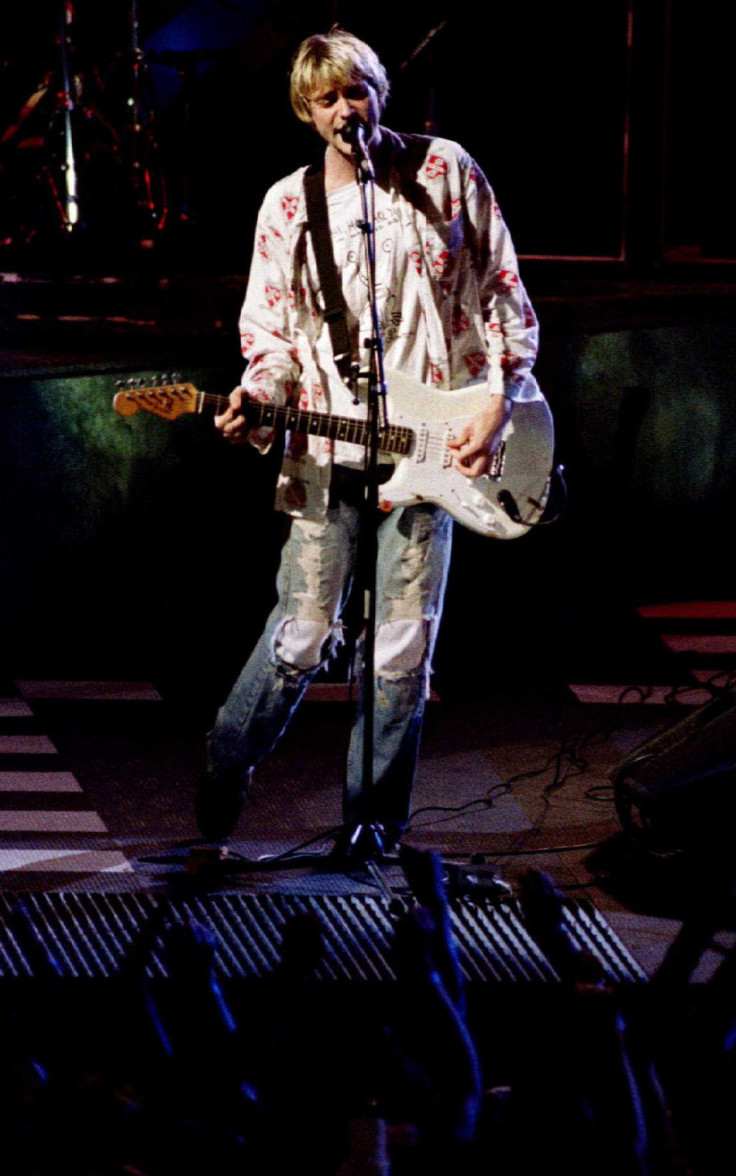Remembering the Life and Legacy of Kurt Cobain

Eighteen years ago, a troubled young rock-star shot himself at the height of his band's success... he was only 27.
If you don't know who we're talking about, he was Kurt Donald Cobain, a singer/songwriter for hugely popular grunge misfits Nirvana, who changed the face of popular music with their second album - "Nevermind".
Few people could have predicted the band - consisting of Cobain (vocals/guitar), Krist Novoselic (bass) and Dave Grohl (drums) - would usher alternative rock into the mainstream of rock 'n' roll and, in company with bands like Soundgarden, Alice in Chains, Pearl Jam and Screaming Trees, expand the idea of alternative rock into an all-new field that we now call Grunge.
By the early 90s, grunge exploded on to the mainstream like an atom bomb destroying all pre-existing forms of music. The new style affected people not only on an audio-aesthetic level but also in terms of fashion, lifestyle and general perception. People started worshipping grunge and grunge musicians were declared gods.
A generation of young people dressed in torn dirty jeans and flannel shirts and spent most of their time drinking alcohol and smoking marijuana, while listening to Black Sabbath and hoping that one day, somehow, they too could strut the stage as their idols did... this was grunge, reported The New York Times in a 1992 article.
However, the sudden burst of limelight and all the crazy media attention that went with the life of being a rock-star was a little more than most grunge musicians bargained for, or even handle. Leading musicians like Eddie Vedder, Chris Cornell and Layne Staley all repeatedly spoke of their discomfort. In the midst of all this, Cobain, who became a sort of spokesperson for his generation, was dragged into the center of a lot of chaos... and that made him even more uncomfortable.
"It was so fast and explosive. I didn't know how to deal with it. If there was a Rock Star 101 course, I would have liked to take it. It might have helped me," Cobain told Rolling Stone Magazine in a 1994 interview .
"I still see stuff, descriptions of rock stars in some magazine - 'Sting, the environmental guy,' and 'Kurt Cobain, the whiny, complaining, neurotic, bitchy guy who hates everything, hates rock stardom, hates his life.' And I've never been happier in my life. Especially within the last week, because the shows have been going so well - except for tonight. I'm a much happier guy than a lot of people think I am," he added.
Cobain, who grew up in a broken family, struggled all his life until he became famous because of his voice, lyrics and music. However, the talented singer, who battled drug addiction all his life, later insisted he never wanted to be a singer. He said he just wanted to play the rhythm guitars somewhere in the background.
"I never wanted to sing. I just wanted to play rhythm guitar - hide in the back and just play. But during those high-school years when I was playing guitar in my bedroom, I at least had the intuition that I had to write my own songs," he added in the interview with Rolling Stones.
The man who never wanted to be famous... never wanted to be in the limelight... and never wanted the burden and expectation of an entire generation was nevertheless a unique artist and musician... and he was so recognised.
Rolling Stones magazine put Cobain at 45 and 73 in their lists of 100 Greatest Singers and 100 Greatest Guitarists of All Time, respectively.
The physical presence that was Kurt Cobain is now only with us in the shape of his wife, fellow-musician Courtney Love and their daughter, Frances Bean Cobain.
However, Cobain's legacy lives on. It lives on in his music... his belief and his attitude, which continues to inspire and motivate thousands of people and artists all across the world.
© Copyright IBTimes 2024. All rights reserved.





